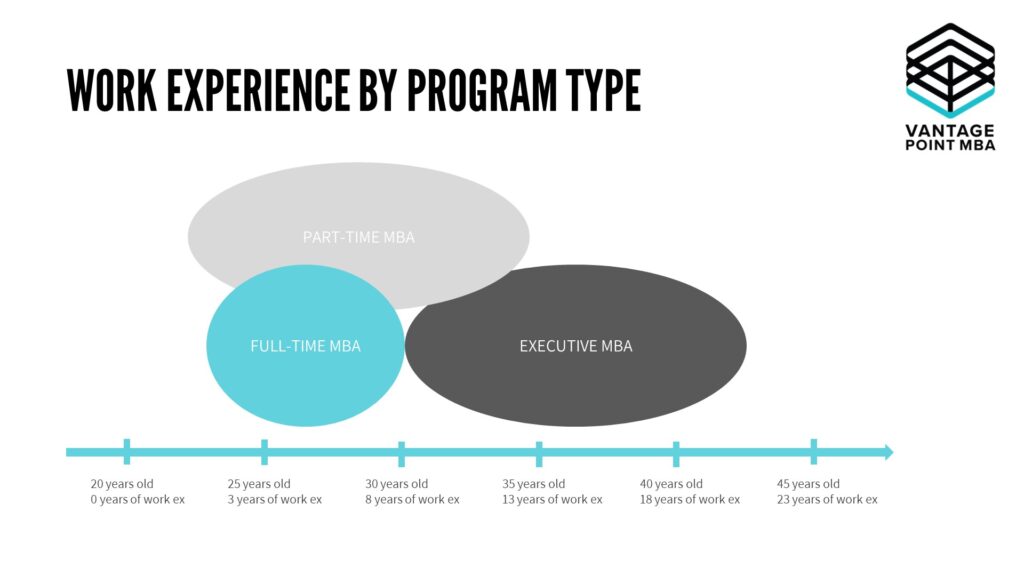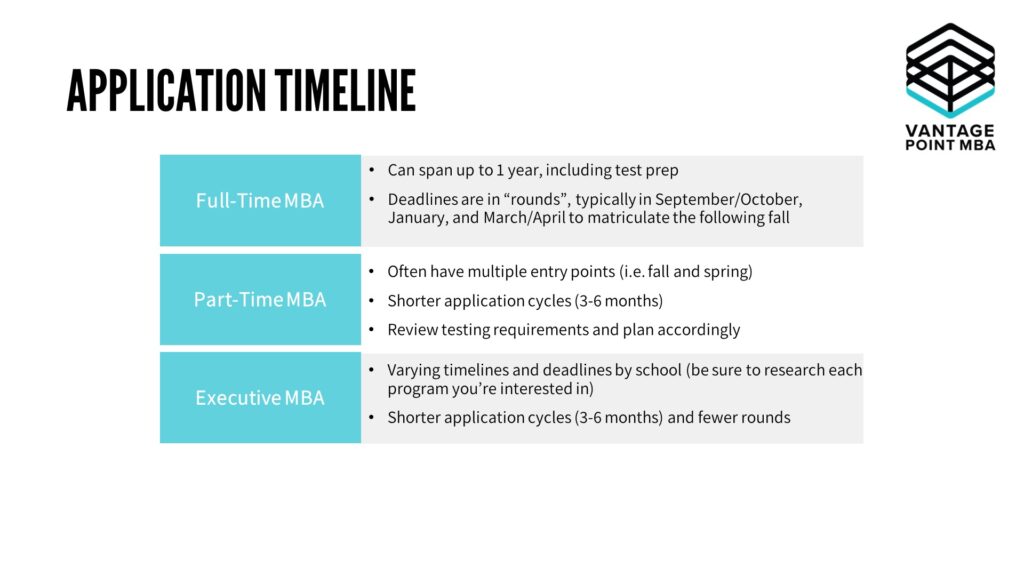Events & Promotions
|
|

GMAT Club Daily Prep
Thank you for using the timer - this advanced tool can estimate your performance and suggest more practice questions. We have subscribed you to Daily Prep Questions via email.
Customized
for You
Track
Your Progress
Practice
Pays
Not interested in getting valuable practice questions and articles delivered to your email? No problem, unsubscribe here.
- Nov 20
07:30 AM PST
-08:30 AM PST
Learn what truly sets the UC Riverside MBA apart and how it helps in your professional growth - Nov 20
10:00 AM EST
-10:30 AM EST
If you’re applying to Columbia, NYU Stern, or Yale SOM, you need more than strong stats. Each school defines “leadership” differently, and your essays must reflect that. Join Sia Admissions founder, Susan Berishaj on November 20th - Nov 12
01:00 PM EST
-11:59 PM EST
Get expert MBA strategy, instant essay feedback, and personalized advice on your entire application. Join My Admit Coach, the AI-powered MBA admissions platform built on 10K+ successful application docs for HBS, Stanford GSB, MIT and other top programs. - Nov 19
09:00 AM PST
-10:00 AM PST
What’s in it for you- Live Profile Evaluation Chat Session with Jenifer Turtschnow, CEO ARINGO. Come with your details prepared and ARINGO will share insights! Pre-MBA Role/Industry, YOE, Exam Score, C/GPA, ECs Post-MBA Role/ Industry & School List. - Nov 19
10:00 AM EST
-01:00 PM EST
Get expert MBA strategy, instant essay feedback, and personalized advice on your entire application. Join My Admit Coach, the AI-powered MBA admissions platform built on 10K+ successful application docs for HBS, Stanford GSB, MIT and other top programs. - Nov 19
11:00 AM PST
-12:00 PM PST
Round 2 is here — and it’s your chance to make your MBA dream happen! Join GMAT Club’s LIVE discussion with two top experts from The Red Pen, Gunjan Jhunjhunwala and Natasha Mankikar, as we break down everything you need to know - Nov 20
09:00 PM IST
-10:00 PM IST
Join our free expert-led Essay Workshops to discover how to choose impactful stories, highlight your core values, and align your background with each school’s distinct culture, making every word truly count. - Nov 21
08:30 AM EST
-09:15 AM EST
Get the inside scoop on what makes Emory’s Goizueta Business School great, learn how you can present a strong MBA application, and connect with an Admissions Director to get your questions answered. - Nov 21
09:30 PM IST
-10:30 PM IST
Learn how to craft powerful, authentic essays by mastering the 3 “WHYs” every top MBA program looks for: Why MBA, Why Now, and Why This School. - Nov 24
08:00 PM PST
-09:00 PM PST
Inquire for a free profile evaluation and guarantee statement for possible admits and scholarships!
Kudos
Bookmarks
| FROM Vantage Point MBA Admissions Blog: Do Business Schools Care if You Visit? Demystifying MBA Networking |
 What is MBA networking and why exactly is it important are questions we’re frequently asked by our MBA admissions consulting clients. In an already subjective and sometimes vague process, “networking” can seem particularly abstract or worse, can simply be another “thing” on your long MBA application to-do list. While there’s no hard deliverable attached to networking, we believe it’s a critical part of the MBA application process and now’s the perfect time to get started if you’re applying in Round 2 – current students are back on campus and you still have time before you need to start working on essays in earnest. So, we’ve broken it all down for you here in order to eliminate some of the mystery and ambiguity that surrounds networking. What Is MBA Networking? Let’s start there. It’s easy to be confused about what “networking” even means. Some folks think it’s very transactional or artificial (i.e., schmoozing), where you reach out to someone to “get something” like a favor, information, or introduction to another person. While that may be true for some people, that’s not the approach or attitude that we recommend. Instead, simply put, networking is building relationships. In the case of your MBA applications, it’s building relationships with a variety of folks who are connected to the application process in some way. It’s a two-way street, where you get to know people and they get to know you. Usually, the relationship is initiated because you have something in common – a friend, an interest, a hobby, an employer, etc. – but the relationship is nurtured because you invest in it and because both parties enjoy it and benefit from it. Oh so “networking” is just a fancy way of saying “meeting new people”, right? Well, yes and no. Yes, because that’s often true but no, because you want to be strategic in your approach. By that I mean that you want to invest your efforts in building relationships with folks who can help guide, mentor, and inform your MBA application process. For instance, a former classmate from undergrad who’s a first-year student at HBS. By connecting with her, you’re sure to gain some valuable insights and advice about the school, its culture, essay tips, etc. And who knows, maybe she’s recruiting at your company for a post-MBA role, and you can share your experience with her in return. Why Is MBA Networking Important? Still skeptical as to why networking for your MBA applications is so important? Here are a few things to consider. If your competition (i.e., other applicants) is networking and leveraging all the resources at their disposal to help inform and strengthen their applications and you’re not, you risk losing out. For an even better reason that doesn’t involve “because everyone else is doing it”, networking can help you put together a more cohesive and compelling application, which in turn increases your chances of admission to your dream MBA program. Let’s dig into how that can be. First and foremost, networking is an opportunity to discover new things about a school that can help solidify your fit and answer to “why X school”. Trust us, a thoughtful and well-researched answer to this question can be the difference that gets you admitted. Most of the time, that kind of information can’t be found on a website. Networking is also a tremendous opportunity to get valuable advice from folks who have been in your shoes. Learn about the unexpected benefits of an MBA from a recent graduate, learn from past MBA students’ mistakes, and get admissions “tips” from folks who have insight into the process. The advice you get along the way can help make the process more efficient, straightforward, or at least slightly less stressful for you. Lastly, the MBA application process can seem like a long, lonely journey and it’s nice to feel supported along the way. My clients are usually blown away (I know I was) by how supportive and helpful current students, alums, colleagues with MBAs, etc. are once they find out you’re pursuing an MBA. MBA’s love to pay-it-forward, so let them! Just be sure to be appreciative and stay in touch with them once you have news about decisions so they can remain invested in your journey. MBA Networking – What Not to Do It should go without saying that all social etiquette rules apply in MBA application networking but just as a quick refresher, here are a few key “DON’Ts”. DON’T wait until the last minute: networking is not an on-off switch and should be approached like a marathon, not a sprint. Building relationships, scheduling coffee chats, etc. takes time. So, start early – like now! Give yourself space to follow-up with your new contacts and keep in touch with them throughout the process. Waiting until two days before the deadline to reach out to a current student with a list of questions whose answers you will plug into your “why school X” essay will not do you any favors. DON’T ask basic or shallow questions: when you’ve finally nailed down that coffee with an alum from your dream school, don’t waste their time asking questions with answers you could easily find on your own. Instead, come with thoughtful questions whose answers will truly further your understanding of how the school fits with your goals and objectives. (Here’s a more comprehensive school selection tool if you’re just getting started.) You want the other person to be impressed with your level of research because who knows, they may end up being an advocate for your candidacy if they also feel like you’re the right fit for their school! DON’T be disrespectful or ungrateful for the other person’s time: MBA students, alums, representatives from admissions, etc. are all very busy and while they’re happy to help, it takes effort on their part. So be sure to express your gratitude for their time and input. If they tell you they can only spare 20 minutes, remain vigilant of the time and wrap up accordingly. Those manners will go a long way in leaving a good impression. How To Get Started Networking With all that said, there’s really isn’t a wrong way to start building your network. In thinking about what the ideal network looks like, it’s comprised of current students and/or alums from your target schools, colleagues/former classmates/mentors, etc. with MBAs, and people in your target post-MBA industry/function. (Note that these three categories are not mutually exclusive – most likely one person will fall into more than one bucket.) An easy place to start is with your existing network – people from work, undergrad, personal circles, etc. who have MBA’s or are somehow connected to an MBA program. Make a list of these individuals and start reaching out to them for a Zoom chat, after-work cocktail, etc. Be present during these conversations and take mental note of what you discussed. If you chatted about a particular current event or recent trend in your industry, for example, send that person an article on the relevant topic a couple of weeks later to show that you give as well as receive. After each meeting, be sure to ask that person to connect you with someone else from his/her network who could be helpful in your application process. Then repeat. Lastly, you can take advantage of third-party platforms and events to further build out your network. LinkedIn, MBA forums (reddit, GMAT Club, Beat the GMAT, etc.), and formal networking events (Poets & Quants’ CentreCourt Festival is October 3rd & 4th; Access MBA has some great in-person events in various cities in the next month or two) are all great places to engage if you feel like your network is a bit sparse. So, Do MBA Programs Care if You Visit? Even if some of the folks above are current students or graduates from your target schools, you should also plan to engage with the schools directly. A great way to do this is through a campus visit, ideally coordinated through the school so you have a chance to sit in on a class and meet current students in addition to sitting through a presentation from admissions. If a school visit isn’t possible, plan to attend at least one virtual information session or webinar. These are great opportunities to hear what the schools believe are their selling points while giving you a chance to ask questions. Current students as well as representatives from admissions typically host these events so it’s a great time to initiate a dialogue with a few of them. Those conversations could even turn into a follow-up meeting or call, depending on how well you connect. Not only will engaging with the schools in as many ways as possible help you determine which programs are the right fit for you and why, but it indicates to the admission committee that you’re serious about their program and have made the effort to get to know it. Some schools make this a critical part of their admissions decisions so it’s worth putting in the time (i.e., more is more!). It’s ultimately up to you to find your own personal style of networking that makes you feel comfortable and authentic, but rest assured that doing this right will only contribute to stronger applications. Interested in personalized, best-in-class coaching for your Round 2 MBA applications? Click here to request an initial consultation. The post Do Business Schools Care if You Visit? Demystifying MBA Networking appeared first on Vantage Point MBA. |
This Blog post was imported into the forum automatically. We hope you found it helpful. Please use the Kudos button if you did, or please PM/DM me if you found it disruptive and I will take care of it.
-BB
Kudos
Bookmarks
| FROM Vantage Point MBA Admissions Blog: What Kellogg’s Adcom Told Us About the Kellogg Video Essays |
|
[img]https://vantagepointmba.com/wp-content/uploads/2023/09/Untitled-design-20-1024x536.png[/img] Kellogg’s Round 1 deadline is today! As you are likely aware if you are applying,[url=https://www.kellogg.northwestern.edu/programs/full-time-mba/admissions.aspx] the application[/url] includes three video essays that are due within 96 hours of submission. As such, today we’re sharing how best to prepare for and tackle the Kellogg video essays. Although Kellogg is not sharing their questions in advance this year, we recently connected with their admissions team who said applicants should expect the questions to be fairly similar to what they were in previous years. More specifically, they recommended ‘using the following questions as a guide of what to expect: [list] [*]Introduce yourself to the admissions committee. [/*] [*]What path are you interested in pursuing, how will you get there, and why is this program right for you? [/*] [*]This question will be based on a challenge you’ve faced and what you’ve learned from it.’[/*] [/list] This part of the application is not meant to stump you or intimidate you (promise!), but we know it can be nerve-racking for many. To help, here is how we recommend you prepare for the Kellogg video essays. Timing is Key Once the clock starts ticking, you will have 60 seconds to answer each question. Our first word of advice is to focus the bulk of your practice on getting the timing right – a minute is shorter than you think! We’ve practiced live with countless clients over the years and most of them initially get cutoff mid-thought. Once you’ve bulleted out your responses, practice saying them (out loud!) with a timer running. Then do it again. Kellogg’s portal also offers practice questions to help you get the timing right – use this resource! In one client’s words “As awful as I think I did [on the practice questions], they got me comfortable with the idea of the videos, which was good.” Content Should be Complementary, not Repetitive Our next word of advice is on content. The admissions committee will have just read your written essays, so don’t overtly repeat them. The Kellogg video essays are an opportunity to build on what you’ve included in the rest of your application. It is also an opportunity to showcase your personality – as such, have a little fun with these, especially the first question. Perhaps throw in a hobby you love or mention your family, pets, spouse, etc. The second question is fairly cut and dry; this is content you should have down pat at this point. Since you don’t know the exact prompt for the last question, prepare a few (2-3) brief stories that might fit. The key with your answer here is authenticity – truly reflect on what each challenge has taught you and how you have put these learnings into practice since. Delivery is the Icing on the Cake (the Best Part, Right?) Lastly, put thought and practice behind your delivery. This is what separates good video essays from great ones. Look directly at your webcam, speak slowly and clearly (a computer mic can sound muffled!), and – most importantly – smile! In our experience, mindset is everything here. Put on the shirt or dress that makes you feel like a million bucks, imagine there is a warm, receptive face on the computer screen and talk directly to it. As we said earlier, this is likely the admissions committee’s only chance to see you ‘live’, so make the most of it. With a little practice, you’ll do great. Video essays tend to stress applicants out more than they need to. This might be easy for us to say from our seat at the table but view them as an opportunity more than a hurdle! As always, we’re here to help, including with hourly advice on things such as interview skills and waitlist strategy. We are also accepting clients for Round 2! Click [url=https://vantagepointmba.com/free-consultation/]here[/url] to schedule an initial consultation. The post [url=https://vantagepointmba.com/2023/09/13/kellogg-video-essays/]What Kellogg’s Adcom Told Us About the Kellogg Video Essays[/url] appeared first on [url=https://vantagepointmba.com]Vantage Point MBA[/url]. |
This Blog post was imported into the forum automatically. We hope you found it helpful. Please use the Kudos button if you did, or please PM/DM me if you found it disruptive and I will take care of it.
-BB
Kudos
Bookmarks
| FROM Vantage Point MBA Admissions Blog: Common MBA Interview Questions and How to Prepare |
 Relieved that you’ve clicked submit on your Round 1 MBA applications? Congratulations! We know the hard work and late nights that go into crafting those essays and filling in seemingly endless application questions. After you’ve taken a moment to breathe, you may be turning your attention to the next step in the process, the interview. We’ve got you covered. This article will give you the lay of the MBA interview land, so to speak, and share some of the most common MBA interview questions. MBA Interview Formats In general, MBA interviews are not formulaic. The focus can range from specific questions about your job responsibilities to broad discussions of life, or random questions about philosophies or current events. The uncertainty of this can be intimidating! At the end of the day, know that schools are just trying to size you up as a person and future professional on all your dimensions. Try to be your witty, charming, natural self. MBA interviews are conducted by students, admissions personnel, and alumni. Don’t dismiss students as lightweights; they follow a defined protocol and report back to the committee on specific criteria. Their insights and opinions are definitely valued by the admissions committee. Many programs conduct a “blind” interview, which means that your interviewer has not seen your application and will only have reviewed your resume. During those interviews, it’s important that your story and goals align with what you wrote about in your application because inconsistencies will be obvious when the admissions committee reviews your interview feedback. A few programs, like HBS, however, do not have a blind interview and your interviewer will have studied your file and prepared questions accordingly. In those interviews, it’s important to corroborate your written application but also bring new stories into the mix so that you don’t repeat content they already learned about in your essays and short answers. Other programs, like Wharton, venture away from a one-on-one interview format altogether and offer a Team-Based Discussion. Others throw in curve ball questions like LBS’ case study. We recommend reading about each school’s interview format on their respective websites. MBA Interview Preparation Techniques As soon as you can schedule an interview, do so ASAP. Slots can fill up fast—even the first day! It does not matter if you interview early or wait until the end of the window. Select the date / time that works best for your schedule. Ideally, you will have about a week to prepare for your MBA interview. Preparation is the key to feeling comfortable and confident. Here is what to do:
Some common MBA interview questions are listed below. You should have answers to most of these when you go into the interview.
HBS Interview – Two Real Life Experiences | Vantage Point MBA MBA Interview Questions – Don’t Let These Stump You | Vantage Point MBA MBA Interview Pitfalls and How to Avoid Them | Vantage Point MBA The post Common MBA Interview Questions and How to Prepare appeared first on Vantage Point MBA. |
This Blog post was imported into the forum automatically. We hope you found it helpful. Please use the Kudos button if you did, or please PM/DM me if you found it disruptive and I will take care of it.
-BB




























